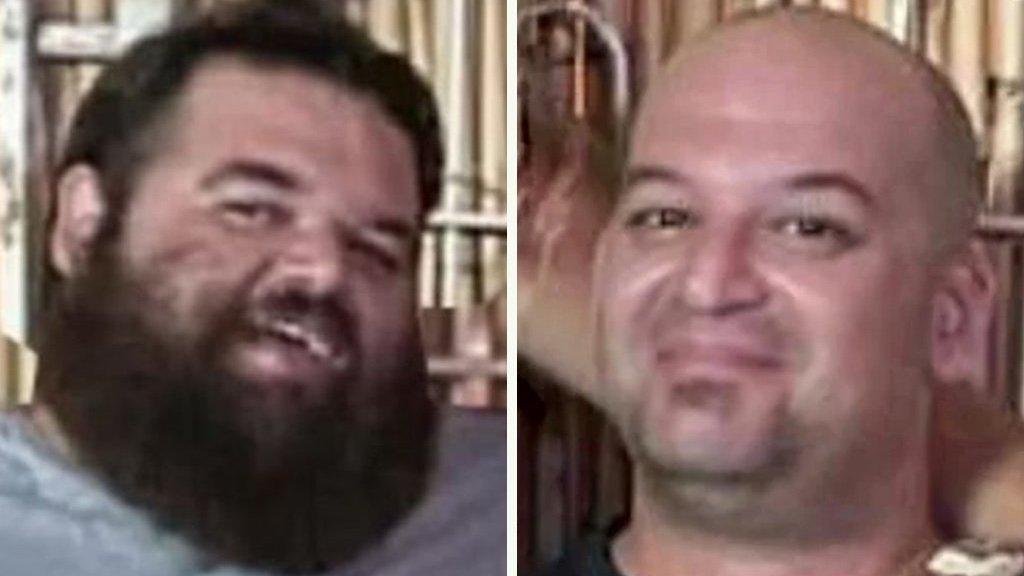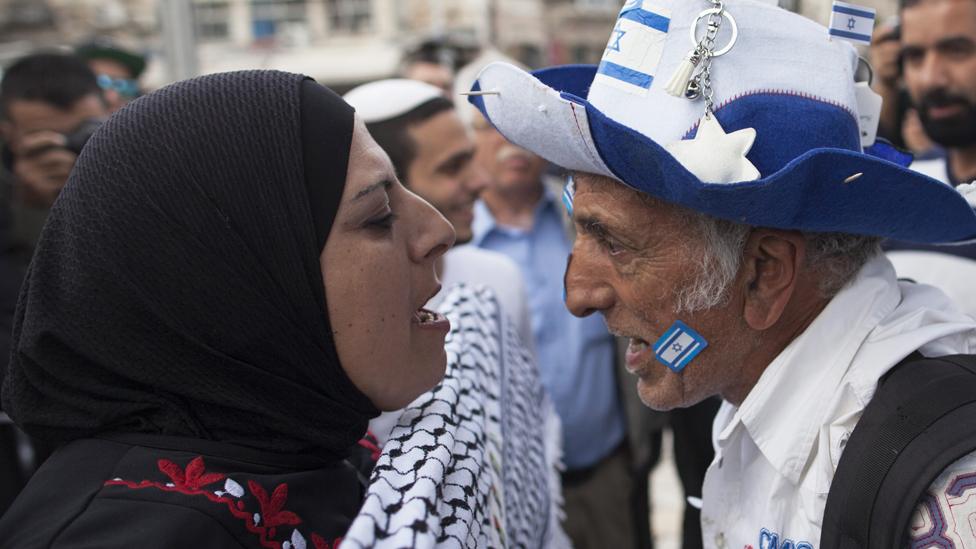Rushdi Abualouf: 'It's so much harder to watch Gaza from the outside'
- Published
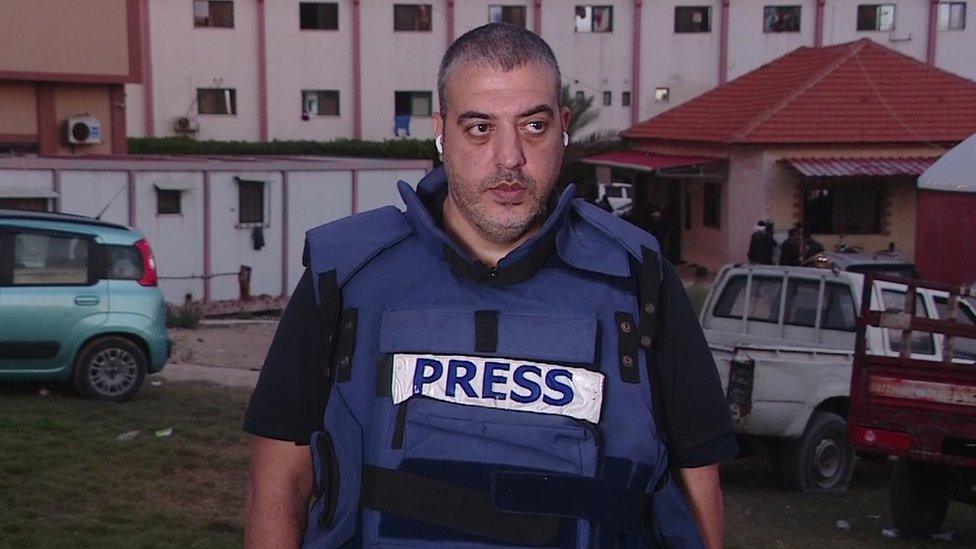
Rushdi Abualouf, reporting for the BBC in Gaza
The BBC's Rushdi Abualouf, who has reported from Gaza for decades, left the territory with his family on 20 November for the sake of their safety. It was six weeks after the Hamas attacks on southern Israel that has led to weeks of Israeli bombardment within Gaza. He is now in Istanbul, Turkey. Speaking on the BBC's Newshour programme, he described how it felt to leave his home and observe Gaza from the outside.
My family and I grew up in Gaza, we were born in Gaza.
I really feel sad that I have had to leave in this way.
I have a memory from every corner of my house, and from every corner of my neighbourhood.
The rest of my wife's family - her father, mother and brother - are still there, while my father, brothers and sisters also remain in Gaza.
To be honest, it's more difficult for me to watch Gaza from the outside, because when I was there, inside the enclave, I was busy dealing with too many things and not thinking about the situation in the Strip.
Now, when you are out, you have more time to think. And it's very hard for me to imagine that I will no longer see my house or sleep in my bed, and I will no longer see my neighbours and my neighbourhood.
Since we left for Istanbul, we were told that our home was destroyed. I mean the whole building, the whole neighbourhood was destroyed.
Some of my BBC Arabic colleagues are still there. I met them all one night before I left because I wasn't sure about the timing, and there was a surprise call in the night telling me to leave.
I told them I would do everything I could to get them out.
"Be strong and work together, the BBC is very proud of you, the BBC will do everything possible to protect you and try to get you out," I told them.
I've called them every morning since I left Gaza. I'm always with them, always advising them, helping them solve every problem they are facing in their location or with their family, and hopefully they will be out soon.
My family had a chance to leave right at the beginning.
When Hamas attacked southern Israel on 7 October, my first call was to the BBC to tell them what happened.
The second was to my wife.
I said to her: "Please prepare your bag, you have to leave Gaza now." I was expecting a very big retaliation from Israel, and the Rafah crossing was still open for the first couple of days after the Hamas raids.
At the beginning, my wife did not realise how big the situation would be and how dangerous it was. I would have to stay to work, and because she didn't want us to be apart, she refused and said: "We will stay together, live together."
On the third day we lost this chance - the Rafah crossing was bombed and closed.
And then you have to deal with so many things.
You have to deal with your old father who lives far away from you. You have to learn to deal with your family and you have to deal with your job.
You have to report, and all the time in the back of your mind is your father, in the back of your mind is your wife, your kids, your place - whenever they drop a bomb, you think: is it close to your house?
After we were forced to leave Gaza City, we first arrived in Khan Younis and stayed with family for a couple of days.
Then there was a warning that the house would be bombed. So we had to leave and found ourselves with nowhere to go.
I decided to put up a tent near a workspace I'd set up in Nasr hospital in Khan Younis. My family stayed there for about a week.
I found a house near the hospital so that they could be close to me, so if something happened I could rush to them.
My flat in Gaza City was 170 sq m, but now everyone was squeezed into one small room. They were worried about me not being with them all the time, and also there was not enough food.
My wife was injured that day when she tried to come and see me. The kids were crying that they wanted to see their dad and they decided to go from the house to the hospital.
When they arrived, one of the buildings was hit - that day they almost died.
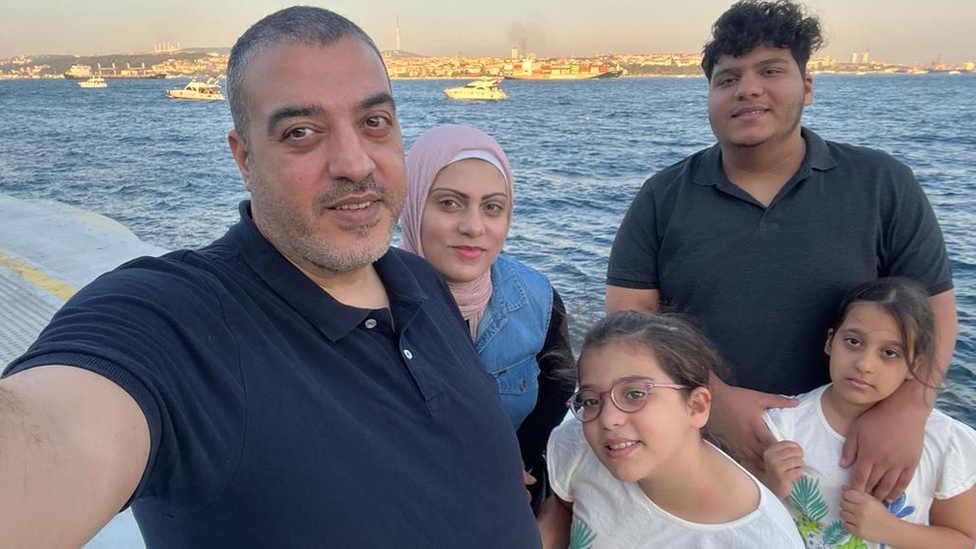
The BBC's Rushdi Abualouf with his family during a holiday before the war broke out
Now that we are out, I know that I will definitely go back.
I always say as a journalist that Gaza is the perfect place to be - because you will find a story on every corner.
But for me personally, my family has been suffering for a very long time.
I told my wife when we left Gaza, when we walked out of the gate: "I will not let you go back under any circumstances.
"So you have to start establishing your life somewhere else."
Now my kids are happy to be out, to go back to a normal life, though they still miss everything.
But I am a journalist, and as soon as the situation allows me to go back to Gaza I will, because I'm connected to this story and I think those 2.3 million people in the Strip deserve having somebody to tell their story.

More on Israel-Gaza war
Follow live: Latest updates
Prisoners: Palestinian criticises Israeli prison as 30 more freed
Explained: Who are the hostages released from Gaza?
In Gaza: How much damage has been done?
History behind the story: The Israel-Palestinian conflict

Related topics
- Published21 October 2023
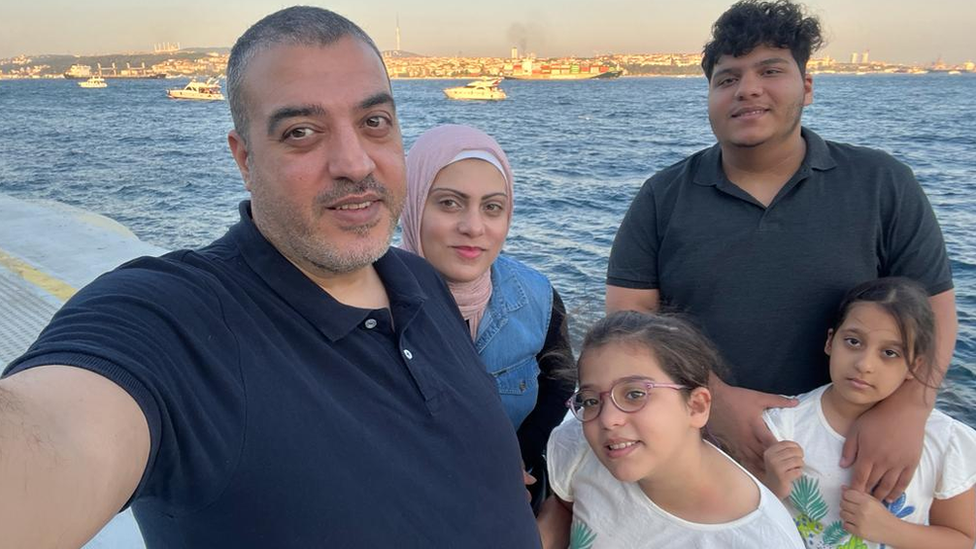
- Published16 January
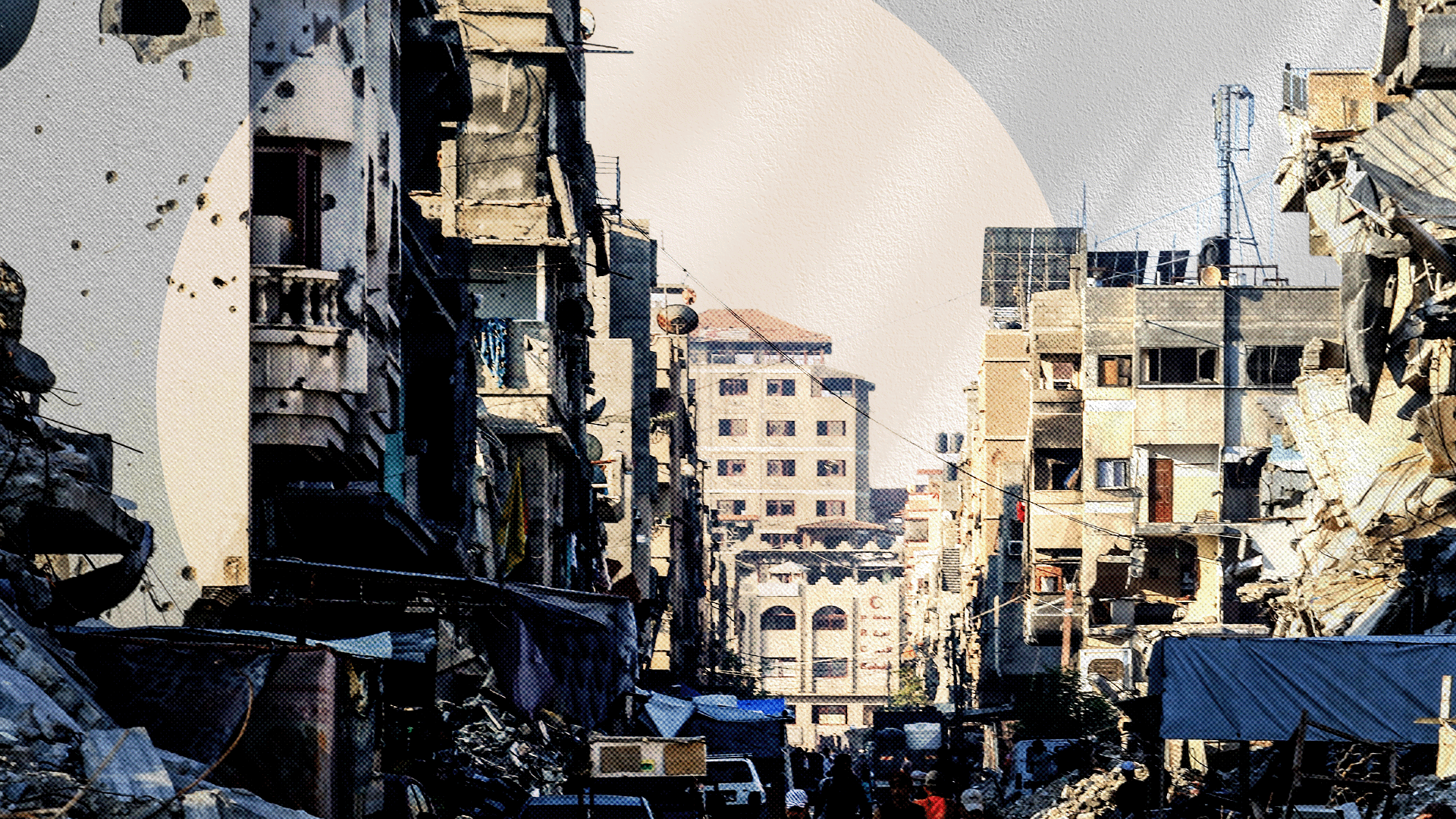
- Published24 October 2023
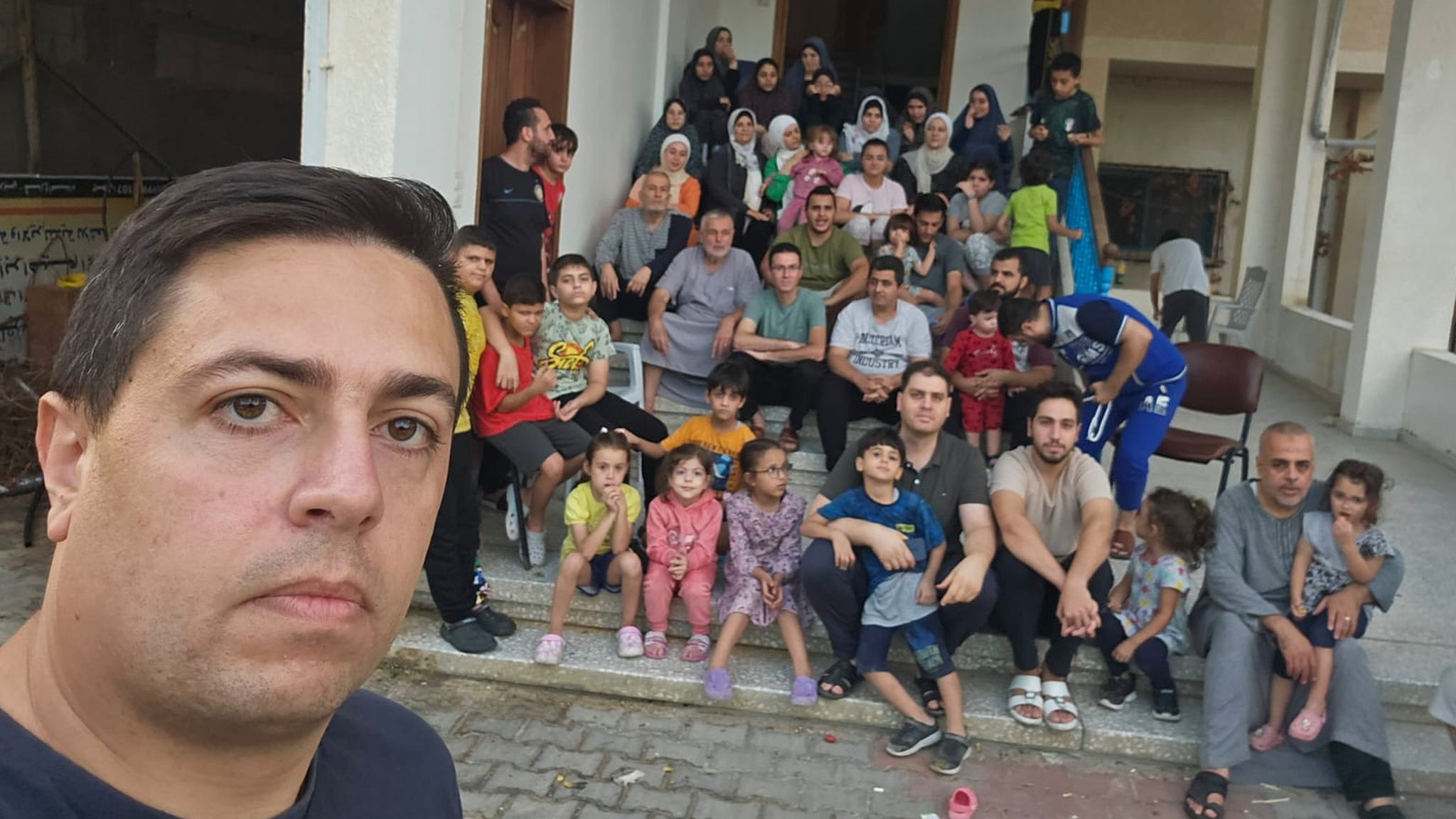
- Published21 October 2023
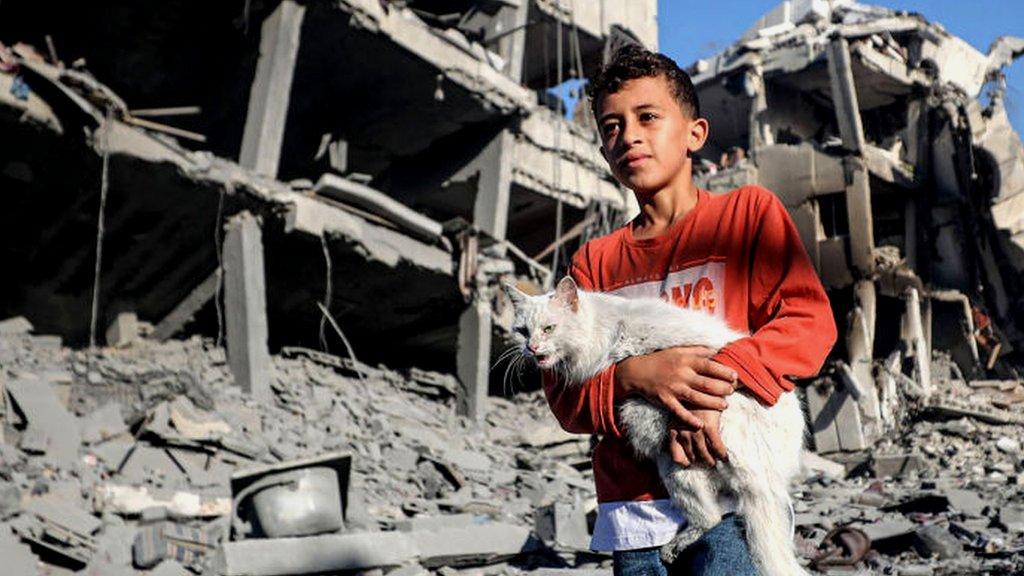
- Published27 February
